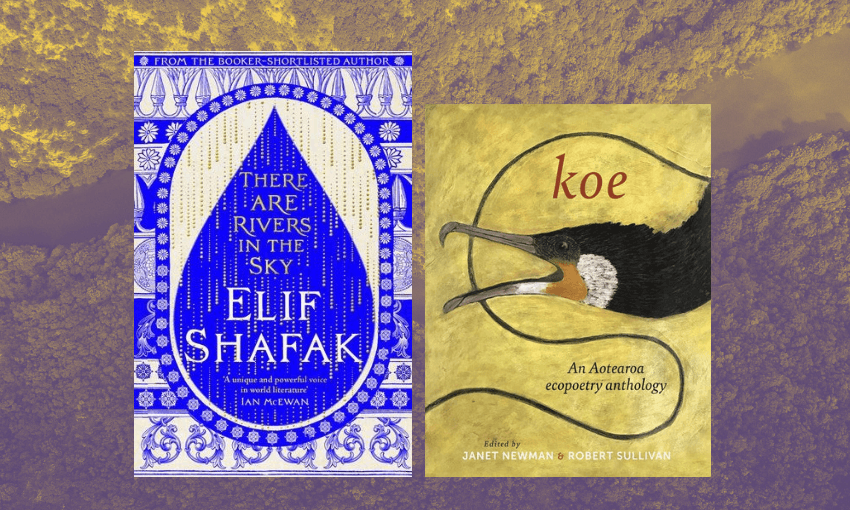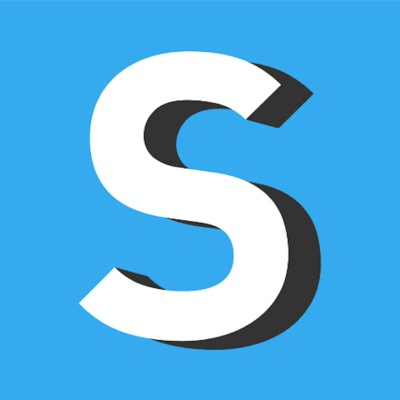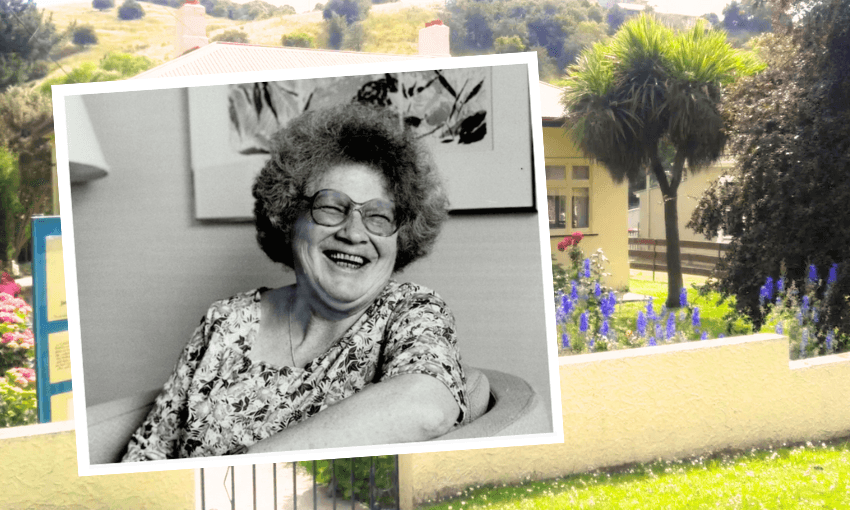The only published and available best-selling indie book chart in New Zealand is the top 10 sales list recorded every week at Unity Books’ stores in High St, Auckland, and Willis St, Wellington.
AUCKLAND
1 There Are Rivers in the Sky by Elif Shafak (Viking Press, $37)
A magnificent time-and-place-spanning epic from one of the most prolific novelists working today.
2 All That We Own Know by Shilo Kino (Moa Press, $38)
Shilo Kino’s second novel is a deep dive into internet culture, Aotearoa and identity.
3 Butter by Asako Yuzuki (4th Estate, $35)
Slavering over this Good Reads review by K.J. Charles: “This was frankly weird. Ostensibly about a woman jailed for multiple murders and her relationship with a journalist. Actually about misogyny in Japan, much of it internalised, and the pressure on women (be thin, pander endlessly to idle childish men, be good at your job, be a mother, be a great cook). Fundamentally about fat.
Actually that’s it. It’s full of lavish, glutinous descriptions of animal fat melting and coating and oozing. The heroine’s weight is tracked throughout and her changing body rigorously monitored. The murderer’s real crime seems to be that she’s unashamedly fat (by the standards applied in this book at least: she seems to be just “not skinny”).
The whole book has a major disordered eating feel to it, tbh, and wasn’t a comfortable or enjoyable read though obv it wasn’t meant to be. I wasn’t quite sure what it was meant to be – it’s not a thriller/detective book despite the promo. Peculiar.
(Also, for anyone following along with the recipes, you really cannot haul a turkey out of the oven and carve it at once. Let the damn thing rest.)”
4 On the Edge: The Art of Risking Everything by Nate Silver (Allen & Unwin, $40)
A book about a collection of risk-takers called “The River”. Here’s the blurb: “These professional risk takers – poker players and hedge fund managers, crypto true-believers and blue-chip art collectors – can teach us much about navigating the uncertainty of the 21st century. By embedding within these worlds, Silver offers insight into a range of issues that affect us all, from the frontiers of finance to the future of AI.
The River has increasing amounts of wealth and power in our society, and understanding their mindset – including the flaws in their thinking – is key to understanding what drives technology and the global economy today. There are certain commonalities in this otherwise diverse group – high tolerance for risk; appreciation of uncertainty; affinity for numbers; skill at de-coupling; self-reliance and a distrust of the conventional wisdom. For The River, complexity is baked in, and the work is how to navigate it, without going beyond the pale.
Taking us behind-the-scenes from casinos to venture capital firms to meetings of the effective altruism movement, On the Edge is a deeply-reported, all-access journey into a hidden world of powerbrokers and risk takers.”
5 Garden Against Time: In Search of a Common Paradise by Olivia Laing (Picador, $55)
A stunning book about what it means to nurture a garden and the continuity of gardens made on stolen land, created with problematic wealth, and in the face of environmental catastrophe. As calming as it is concerning.
6 Becoming Tangata Tiriti: Working with Maori, Honouring the Treaty by Avril Bell (Auckland University Press, $30)
“Sociologist Avril Bell analyses the complicated journey of today’s partners of te Tiriti o Waitangi, and asks: Who are we as tangata tiriti? How do we identify in relation to Māori? What are our responsibilities to te Tiriti? What do we do when we inevitably stumble along the way?
With words by champions in their fields, including Meng Foon, Andrew Judd and others, this concise paperback acts as a guide for those just beginning their journey towards a Tiriti-based society – and is a sound refresher for others well along the path.”
7 Hillbilly Elegy: A Memoir of a Family & Culture in Crisis by J.D. Vance (Harper Collins, $40)
Trump’s running mate published this hugely successful memoir in 2016, which was made into a movie soon after. Here’s an excerpt from an article in the Guardian, a reflection on the book in light of Vance’s current political aspirations:
“Vance, who once famously called Trump ‘America’s Hitler‘, has changed his talking points significantly since 2016. But as Appalachian writer Sarah Jones notes, Vance today is still the outlined in his book – a shapeshifter adept at appealing and adapting to power. Back in 2016, he aimed at the old-school elite. The book was alluring for its many colourful, sometimes genuinely enjoyable descriptions of his family, particularly the eccentric, idiosyncratic Mamaw, and digressions on the derailing effect of domestic instability that map onto our modern understanding of trauma. Within that, he blended amateur sociology with condescension and a free pass for elites; the limitations of class, he argued, were psychological. ‘People talk about hard work all the time in places like Middletown,’ he wrote. ‘You can walk through a town where 30 percent of the young men work fewer than twenty hours a week and find not a single person aware of his own laziness.’ He wrote favourably of work by Charles Murray, author of specious studies on racial differences in IQ, arguing that welfare encouraged social decay.”
8 All Fours by Miranda July (Canongate, $37)
“What happens when a curious, creative, sexually active woman reaches the midpoint of her life and questions her direction? Is there a dissonance to being queer yet finding yourself in a heterosexual marriage and a nuclear family? And what does it mean when said woman embarks on a road trip from Los Angeles to New York to recalibrate, but finds herself heading no further than Monrovia, on the outskirts of the city; holing up in a dingy motel off the highway; and feeling inexplicably drawn to a young man who works at a local branch of Hertz—and his interior decorator girlfriend?” Read more on Vogue.
9 Kairos by Jenny Erpenbeck (Granta UK, $28)
The international Booker Prize winner.
10 Bookshop Detectives: Dead Girl Gone by Gareth Ward & Louise Ward (Penguin, $38)
Top booksellers are now top book writers!
WELLINGTON
1 Koe: An Aotearoa ecopoetry anthology edited by Janet Newman & Robert Sullivan (University of Otago Press, $50)
Over 100 poems reveal a longevity of ecopoetry spanning pre-European Aotearoa to the present day.
2 Bookshop Detectives: Dead Girl Gone by Gareth Ward & Louise Ward (Penguin, $38)
3 Becoming Tangata Tiriti: Working with Maori, Honouring the Treaty by Avril Bell (Auckland University Press, $30)
4 This Must Be the Place: How Music Can Make Your City Better by Shain Shapiro (Repeater Books, $37)
This book sounds like a tonic. Here’s the blurb: “This Must Be the Place introduces and examines music’s relationship to cities. Not the influence cities have on music, but the powerful impact music can have on how cities are developed, built, managed and governed.
Told in an accessible way through personal stories from cities around the world – including London, Melbourne, Nashville, Austin and Zurich – This Must Be the Place takes a truly global perspective on the ways music is integral to everyday life but neglected in public policy.
Arguing for the transformative role of artists and musicians in a post-pandemic world, This Must Be The Place not only examines the powerful impact music can have on our cities, but also serves as a how-to guide and toolkit for music-lovers, artists and activists everywhere to begin the process of reinventing the communities they live in.”
5 Blue Sisters by Coco Mellors (4th Estate, $38)
About sisters with the last name of Blue.
6 On the Edge: The Art of Risking Everything by Nate Silver (Allen & Unwin, $40)
7 There Are Rivers in the Sky by Elif Shafak (Viking Press, $37)
8 Invisible Doctrine by George Monbiot & Peter Hutchison (Allen Lane, $32)
Essential reading. Here’s the blurb: “How can you fight something if you don’t know it exists?
We live under an ideology that preys on every aspect of our lives: our education and our jobs; our healthcare and our leisure; our relationships and our mental wellbeing; the planet we inhabit – the very air we breathe. So pervasive has it become that, for most people, it has no name. It seems unavoidable, like a natural law.
But trace it back to its roots, and we discover that it is neither inevitable nor immutable. It was conceived, propagated, and then concealed by the powerful few. Our task is to bring it into the light–and to build a new system that is worth fighting for.”
9 Butter by Asako Yuzuki (4th Estate, $35)
10 Whaea Blue by Talia Marshall (Te Herenga Waka University Press, $40)
One of the most interesting writers in Aotearoa today. Read an excerpt from this stunning book on The Spinoff.




